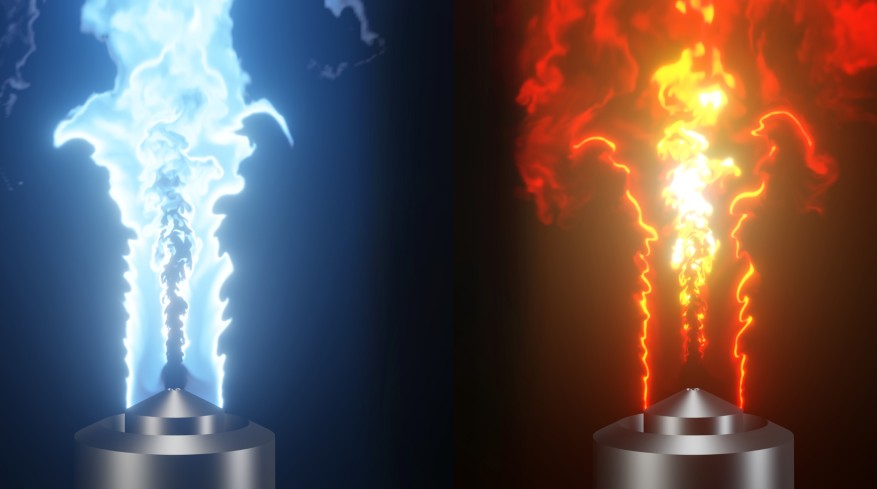Simulations for a sustainable energy system transformation
TU Darmstadt is part of a network of European top research institutions
2020/11/05
The EU research project “Center of Excellence in Combustion” (CoEC), granted with a budget of over 5.6 Million Euro, has started. Eleven partners from eight countries are involved – including the “Institute of Simulation of reactive Thermo-Fluid Systems“ and “Institute for Energy and Power Plant Technology” from the department of Mechanical Engineering at TU Darmstadt.

Sustainable energy conversion: turbulent combustion of synthetic fuels under relevant conditions
Combustion processes are characterized by complex interaction of turbulent flow and chemical reactions. The interplay between laser-optical diagnostics and high resolved numerical simulations allow for fundamental understanding of complex turbulent combustion phenomena and provide the basis for development of modeling approaches, applicable for technical combustion systems.
The figure shows rendering of instantaneous simulation results, i.e. the OH (blue) and CO (red) distributions, in a burner configuration, representative for technical combustion system and specifically developed to study the effect of multi-regime combustion.
With the European Green Deal the EU has set the goal reaching climate neutrality in its energy and transport sector. To make this possible in combustion processes, new innovative concepts on an industrial scale are required. For this purpose, the use of computer-aided simulations is indispensable, as they provide insights into combustion that cannot be achieved by experiments. However, such simulations are very complex and require new models to efficiently simulate for example CO2 neutral hydrogen combustion or soot formation. This is where the CoEC project, which will run until 2023, comes in and combines the experience of the eleven project partners in the field of combustion simulation.
In the project, the existing simulation tools are to be further developed in order to be able to exploit the growing computing capacity of supercomputers, which will soon exceed the limit of one ExaFlop. To validate the codes and models and also to explore the possibilities of “exacomputing”, complex demonstrator simulations are planned.
Goal: climate-neutral combustion systems
The new findings and software will later be transferred to industry and research to enable the development of low-emission and climate-neutral combustion systems.
Partners in the consortium: Centre Européen de Recherche et de Formation, Avancée en Calcul Scientifique (CERFACS), RWTH Aachen University, Eindhoven University of Technology, University of Cambridge, Centre National de la Recherche Scientifique (CNRS), Technical University of Darmstadt, ETH Zürich, Aristotle University of Thessaloniki, Forschungszentrum Jülich (FZJ) and National Center for Supercomputing Applications.
has/feu
